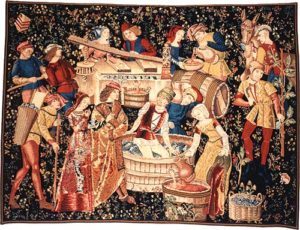The Total Party Kill (TPK) – Part 3
By
After a Total Party Kill (TPK), players around the gaming table sometimes harbor hard feelings.
The loss of a beloved character often upsets players. They may blame another player, presuming that player responsible for the party’s death. Alternatively, players may lay the blame at the GM’s feet, especially if they feel the GM dealt with the scene, mechanics, or situation in a manner that was unfair or mechanically incorrect.
On the other hand, the GM can feel just as upset with the players or just a player as they are with the GM. The GM may feel that the players didn’t take the game seriously enough, or perhaps intentionally ruined a storyline the GM spent a great deal of time and effort in crafting.
An honest, open discussion can diplomatically handle many of these situations. As with any social dynamics everyone involved must listen to one another’s viewpoint—whether they agree with each other or not. If initial dialogue doesn’t seem to help ease the group’s hard feelings, postponing a game session to allow everyone to step back, cool off, and put matters into perspective. This allows all involved to take time to reflect on the situation and allows everyone time to decompress. Usually the group comes come back to the gaming table with a fresh perspective.
Restarting The Party
 The GM can restart the party in several ways. Most likely the largest question is whether to start the new PC builds at the level at which the TPK took place or at level one. If you rebuild at current level consider how you will account for magic items, group treasury and assets the party possessed that affected the power level of the group as a whole.
The GM can restart the party in several ways. Most likely the largest question is whether to start the new PC builds at the level at which the TPK took place or at level one. If you rebuild at current level consider how you will account for magic items, group treasury and assets the party possessed that affected the power level of the group as a whole.
If you decide to restart at 1st level, fast tracking the group’s advancement up to the level at which the TPK happened may make the demotion easier for the players to accept. One possible way to do this is to half the XP requirements for leveling until the new characters reach the desired level.
Avoiding the TPK
Often, an experienced GM can foresee a TPK evolving and take some action to prevent it. A careful GM can withhold an adversary’s abilities, special features, or even reduce modifiers to attacks or damage. Alternatively, the GM could have an NPC or other such event come to the aid of the party to prevent the TPK from happening. With a bit of finesse and subtle manipulation the GM can intervene in these ways, and in most cases the party will be oblivious as to the threat avoided.
However, in many instances, everyone at the table knows that a TPK is about to happen as it seems a nearly foregone conclusion. Such cases generally requires a heavy hand by the GM to force some type of deus ex machina in the scene to prevent the TPK from unfolding as expected. In most of these cases, it also take some cooperation from the players to work out the details of the storyline.
The TPK can be a fun experience
 In the event the TPK does happen (as it usually does to anyone who games for long enough), remember that a party wipe can still be a rewarding and enjoyable experience for the gaming group. Lessons can be learned, such as gaining experience on how the party interacted with one another or what elements of play worked or did not work well for this group; this hard won wisdom can help the players and the GM to become better gamers. As a player, try to discern the actions you took that aided the group and consider those facets moving forward to help you better play your next character. As a GM, look at what within the scene could have been changed to prevent the TPK.
In the event the TPK does happen (as it usually does to anyone who games for long enough), remember that a party wipe can still be a rewarding and enjoyable experience for the gaming group. Lessons can be learned, such as gaining experience on how the party interacted with one another or what elements of play worked or did not work well for this group; this hard won wisdom can help the players and the GM to become better gamers. As a player, try to discern the actions you took that aided the group and consider those facets moving forward to help you better play your next character. As a GM, look at what within the scene could have been changed to prevent the TPK.
All in all, whether player or GM, try to focus on the positives: what could be done better and what elements added to the enjoyment for everyone at the table. After all, the main focus of the gaming group is to have a good time.

